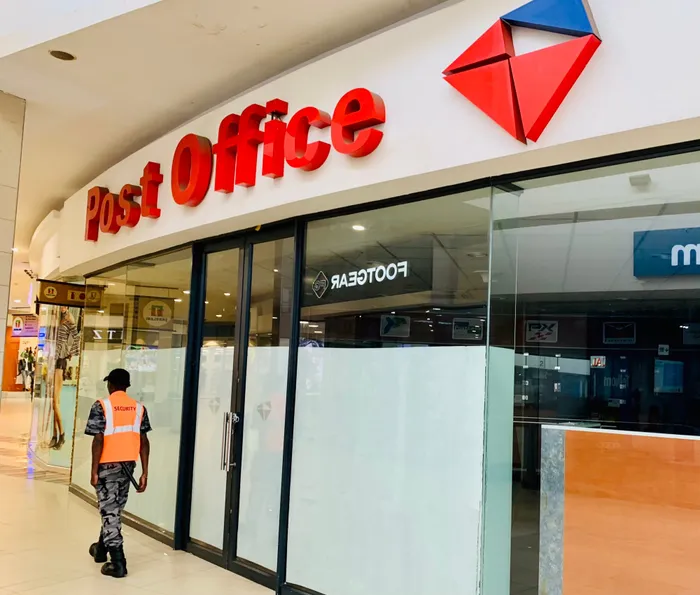
With more than a thousand branches scattered across the country from bustling cities to forgotten rural towns, the South African Post Office holds what no private company can replicate, national reach and public trust.
Image: Bhekikhaya Mabaso/Independent Newspapers
AS I write this, I’m reminded of an old proverb: “A cat that dreams of becoming a lion must begin by losing its appetite for rats.”
If the South African Post Office (SAPO) dreams of becoming a lion- again a proud, reliable national institution it must first stop feeding on the habits that have made it weak.
Fixing SAPO is not about nostalgia or sentimentality. It’s about national survival. With more than a thousand branches scattered across the country from bustling cities to forgotten rural towns, SAPO holds what no private company can replicate, national reach and public trust.
Used wisely, this vast network could anchor two of South Africa’s most urgent priorities: financial inclusion and e-commerce logistics. Yet for decades, the Post Office has been allowed to decay into a symbol of inefficiency, long queues, lost mail, unpaid workers, and missed opportunities.
It has become the poster child of how state institutions collapse when political leadership looks the other way.
Meanwhile, across Europe, postal services have reinvented themselves. France’s La Poste operates a profitable postal bank serving millions.
Germany’s Deutsche Post DHL became a global logistics powerhouse. Italy’s Poste Italiane evolved into one of the country’s most profitable companies. None of these transformations were miracles; they were products of discipline, vision, and accountability.
Now imagine a South African Post Office that works for people. A place where you can collect your SASSA grant, open a Postbank account, renew your driver’s license, apply for an ID, and collect an online shopping parcel all in one visit. Add public Wi-Fi and digital literacy programs, and suddenly, each branch becomes a gateway to opportunity rather than a relic of frustration.
This vision is achievable but only if the government stops treating SAPO as a welfare project and starts managing it as a national service platform. The proposed billions of recapitalisations should not be a blank cheque.
It must come with clear conditions, strict oversight, and a commitment to professional management. South Africa cannot afford another bailout with no accountability.
The blueprint for change is clear:
The Post Office is more than a business; it’s a national infrastructure. Letting it die would deepen inequality and sever millions of South Africans from essential services and digital progress.
It’s time for a new mandate, one that reimagines SAPO not as a burden but as a bridge, connecting ordinary South Africans to the modern economy.
France, Germany, and Italy proved that postal reform is not only possible but profitable. The question is whether South Africa’s leaders have the courage to make SAPO roar again or whether they’ll let another vital institution go the way of the lions we only see in history books. The Post Office can deliver again not just letters, but South Africa’s future.
NYANISO QWESHA
Cape Town